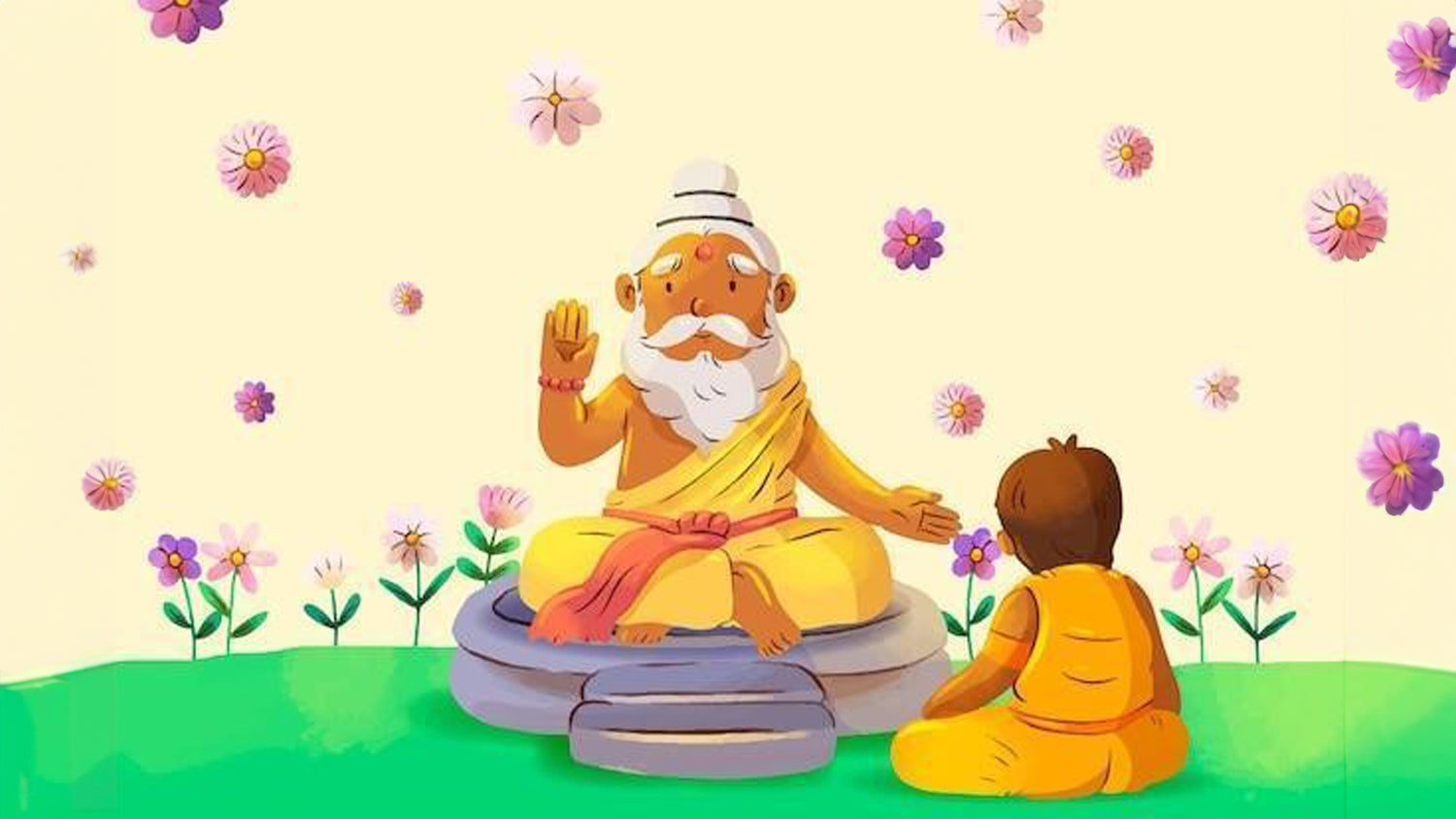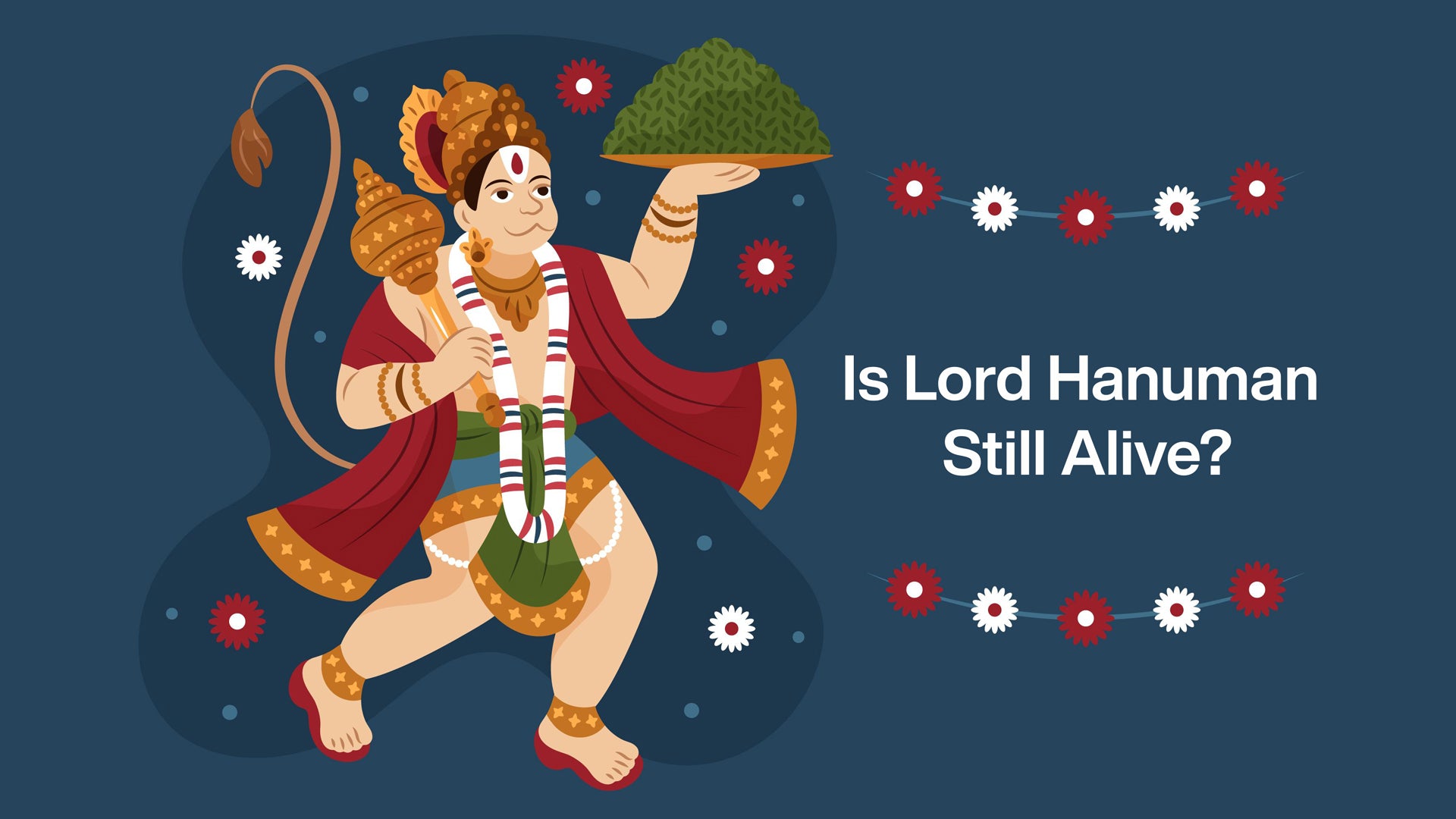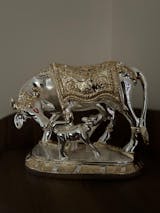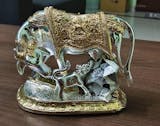“Chiranjeevi,” a Sanskrit word that means “immortal,” is a combination of two words—“chiram” (long) and “jeevi”(alive). As per the Hindu doctrine, chiranjeevi are immortal beings who will walk the Earth through this Kali Yuga till the end of time.
One of the most popular chiranjeevi is Lord Hanuman, whose idol can be found in many Hindu households across India and worldwide. This article explores 7 Chiranjeevi names and their significance in Hinduism.
7 Chiranjeevi Names Everyone Should Know
1. Ashwathama
Ashwatham, or Ashwathama, was the son of Drona, the guru of Pandavas, and his wife Kripi. He hailed from a line of Brahmin weapon masters and was known for his exceptional combat skills and loyalty to his friend Duryodhan. Ashwathama is considered one of the eight Rudras and was the final commander-in-chief of the Kauravas in the great Mahabharata war.
Even though he was on the losing side, Ashwathama did not give up on his friend. The unwavering loyalty to his friend, however, became a curse for him to live a long life of misery till the end of time. His story serves as a reminder that loyalty to the wrong people never leads to a fruitful ending.

2. King Mahabali
Also known as Bali, Indrasenan, or Maveli, Mahabali is a Daitya king. Despite the negative connotation associated with Daityas, he is described in the early scriptures as a benevolent and generous king.
Mahabali is also the grandson of Prahlada and a descendant of sage Kashyapa. In Kerala, he is celebrated as the noblest and most prosperous ruler. The annual festival of Onam is held in his honour.
When Mahabali was losing himself to ambition, Lord Vishnu, in his Vamana avatar, tested him by asking for as much land as he could cover in three steps, which Mahabali granted happily. The story of the great king offering his head to Vamana to step on serves as a reminder of the importance of humility and the dangers of unchecked ambition.

3. Ved Vyasa
Ved Vyasa is celebrated as the author of the great epic Mahabharata. In some cultures, he is considered a partial incarnation of Lord Vishnu. Burdened with the duty of keeping a record of the greatest triumphs and falls in human history, Vyasa still walks the Earth and can only rest once the Kali Yuga ends. He was the one to compile the eternal Vedas into four separate books. Many Hindus believe he is still out there documenting the deeds of present times.

4. Hanuman
Lord Hanuman is considered an avatar of Lord Shiva. He is an example of true love and devotion, as narrated in the epic Ramayana. He is the embodiment of a Karma Yogi and is worshipped for his wisdom, strength, courage, devotion, and self-discipline. Even today, a Hanuman murti is a staple for any sportsperson, reminding them of the virtue of hard work and discipline. The Vayu Putra walks the Earth, and it is said that every time the Ramayana is narrated, he is present to listen to the discourse.

5. Vibhishana
The younger brother of the king of Lanka, Ravana, Vibhishana joined Lord Rama’s side as he wanted to fight for the right. This son of sage Vishrava and Rakshasi Kaikesi was a pious man and followed the path of a Brahmin. Once Lord Rama defeated Ravana, Vibhishana was crowned the king of Lanka.
Vibhishana is the antithesis of Ashwathama—the chiranjeevi who chose evil by being loyal to his friend. He chose the side of good despite his love for his brother. In doing so, he was rewarded while Aswathama had to live out a curse.
These stories tell us that choosing to do the right thing must always be our priority, no matter the circumstances.

6. Kripacharya
He was the first teacher of the Kauravas and Pandavas. Kripacharya was adopted by King Shantanu, along with his sister Kripi, the wife of Guru Drona. While he fought the war of Kurukshetra from the Kaurava side, he was one of the few warriors still alive after it was all over. The scriptures describe him as one of the seven chiranjeevi.

7. Parashurama
Lord Parashuram is the sixth avatar of Lord Vishnu. Born in the Dwapar Yuga, his life serves as a reminder of why rage and revenge are never the answer. He was blessed by Lord Shiva with an axe, which made him invincible in battle. The warrior Brahmin is foretold to be the martial teacher of Kalki, the tenth and final avatar of Lord Vishnu, who is yet to walk the Earth.

Conclusion
Hinduism is the source of the vibrant culture that thrives in India today. The sense of right and wrong, fair and unfair, is rooted in its teachings. The stories of the 7 chiranjeevi beings serve as a teaching tool for all things good and bad and the balance of Karma. The names of 7 chiranjeevi are forever etched in scriptures to be carried over to the end of days.





